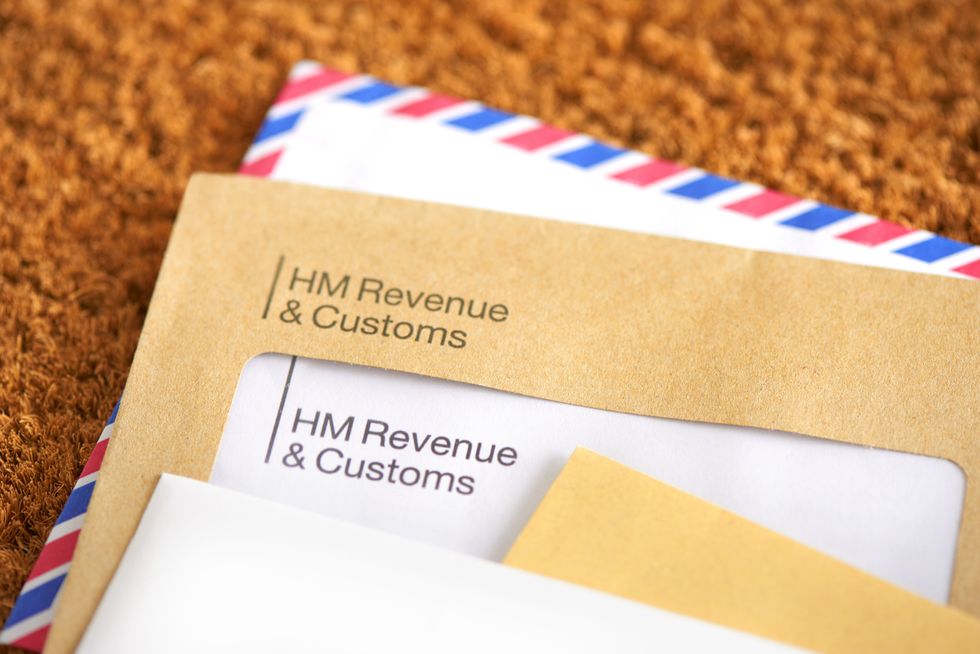Inheritance tax: The secret trick that less than 2% use to slash their bill

For many families, it could be one of the most tax-efficient strategies in estate planning, if used correctly
Don't Miss
Most Read
Latest
Just one in 50 Britons are utilising a valuable inheritance tax exemption that could significantly reduce their family's tax burden.
Families could be missing out on thousands by ignoring a little-known inheritance tax exemption used by less than two per cent of estates.
A Freedom of Information request to HMRC by wealth manager Quilter has revealed that a mere 1,490 estates paying inheritance tax have used the "gifts out of surplus income" rule over the past three years.
This underused loophole allows people to pass on wealth immediately tax-free, without waiting for the seven-year rule that applies to most gifts.
To qualify, the gifts must be made from regular surplus income, not capital. They must form a pattern of giving, and crucially, must not reduce the donor’s standard of living.
The donor also needs to show that the gifts came from income left over after covering normal living expenses.
This creates an opportunity for immediate inheritance tax savings, especially for higher earners or pensioners with unspent income.

This underused loophole allows people to pass on wealth immediately tax-free
| GETTYDespite its generous tax advantages, the exemption is rarely used. HMRC data shows that fewer than two per cent of estates claim it, a figure experts say reflects the rule’s complexity.
To qualify, donors must provide clear evidence that gifts were made from surplus income, not savings, and that their standard of living was unaffected.
This requires careful record-keeping, and if the paperwork falls short, the claim may be rejected during probate.
For many, the administrative burden is enough to put them off entirely. Compared to simpler one-off gifts, the paperwork can seem daunting. Even so, tax experts say the rule is worth the effort.

HMRC is urging couples to see if they can use gifting to save
| GETTYCraig Rickman, personal finance expert at interactive investor said: "Any gifts given from surplus income (i.e. income not spent on living costs) are immediately excluded from your estate for IHT purposes – even if you die within seven years.
“This little-known rule is powerful yet underused – only 430 families claimed this exemption in the 2022–23 tax year.
"For example, if you earn £30,000 after tax and spend £20,000, you could give away £10,000 with no IHT implications.
“However, it’s essential to keep detailed records to prove the gifts were made from surplus income. Without this, your family could face a tax charge if you die within seven years."
With inheritance tax receipts hitting a record £8.2bn between April 2024 and March 2025, more families than ever are being dragged into the net.
Inheritance tax is charged at 40 per cent on estates above £325,000, though the threshold rises to £500,000 if a home is passed to direct descendants. Assets left to a spouse or civil partner are entirely tax-free.
From April 2027, pensions will be brought within the scope of inheritance tax under reforms announced by Labour Chancellor Rachel Reeves, who has pledged to close what she calls a "loophole created by the previous government."
With this change on the horizon, financial advisers are urging families to act early and take advantage of the "gifts out of surplus income" exemption.
That would allow them to reduce the size of their taxable estate while still making use of pension savings.
For many families, this could become a key tool in estate planning — offering both flexibility and immediate tax relief, if done correctly.
Rachael Griffin, tax expert at Quilter explained that with pension tax changes coming in 2027, she expects more people to use this exemption to cut their IHT bills as it's a "hugely valuable strategy", for those who can afford it.

The exemption's immediate effect makes it particularly attractive compared to other gifting methods
| GETTYThe exemption's immediate effect makes it particularly attractive compared to other gifting methods. The potential tax savings from this strategy are substantial for British families.
Regularly gifting £10,000 annually from surplus income over seven years could reduce an inheritance tax bill by £26,800.
This compares favourably with using the £3,000 annual gifting allowance, which could save £7,200 in IHT. Even making small gifts of £250 to six people could save £3,000 in tax.
Married couples and civil partners can effectively double these savings by each using the available exemptions.
Rickman concluded: "The key is to be aware of the IHT gifting options available to you and make an informed decision to suit your specific aims."











